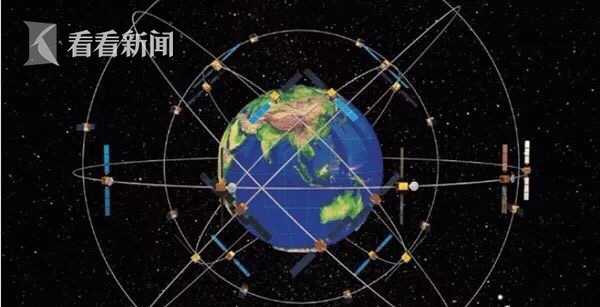
1. The main functions of the operating system: CPU management, storage management, file management, device management and operation management.
2. C [Analysis] The operating system should usually include the following five functional modules: (1) Processor management. When multiple programs run at the same time, solve the processor (CPU) time allocation problem. ( 2) Operation management. The program to complete an independent task and its required data constitute a task.
3. The five functions that computer operating systems usually have are CPU management, storage management, file management, equipment management and job management.
1. The five functions of the operating system are processor management, memory management, device management, file management and job management. Processor Management ProcessorThe most basic function of management is to handle interrupt events. After configuring the operating system, various events can be handled.
2. The main functions of the operating system: CPU management, storage management, file management, device management and operation management.
3. C [Analysis] The operating system should usually include the following five functional modules: (1) Processor management. When multiple programs run at the same time, solve the processor (CPU) time allocation problem. ( 2) Operation management. The program to complete an independent task and its required data constitute a task.
4. CPU management, storage management, file management, equipment management and operation management. According to the query Baidu Education, the five functions that computer operating systems usually have are ___.
The operating system has five functions: processor management: mainly controls and manages the work of the CPU. Storage management: mainly allocate and manage memory. Device management: mainly manage basic input and output devices. File management: responsible for the organization, storage, operation and protection of computer files.
C [Analysis] The operating system should usually include the following five functional modules: (1) Processor management. When multiple programs run at the same time, solve the processor (CPU) time allocation problem. ( 2) Operation management. The program to complete an independent task and its required data constitute a task.
CountThe five functions of computer operating systems are: processor management, memory management, device management, file management and job management. Processor management The most basic function of processor management is to process interrupt events. After configuring the operating system, various events can be processed.
The five functions that computer operating systems usually have are as follows: Processor management: When multiple programs are running at the same time, it solves the problem of processor time allocation. Homework management. Memory management: allocate storage space for each program and the data it uses, and ensure that they do not interfere with each other. Equipment management.
Computer operating systems usually have five functions, which are: Process management: Process management is responsible for managing multiple processes in the computer, including starting, stopping and scheduling the operation of processes.
CPU management, storage management, file management, equipment management and operation management. According to the query Baidu Education, the five functions that computer operating systems usually have are ___.

1. FuckThe five functions of the system are: processor management, memory management, equipment management, file management and operation management. Processor management: The most basic function of processor management is to handle interrupt events. The processor can only detect interrupt events and generate interrupts and cannot process them.
2. The five major functions of the operating system are processor management, memory management, device management, file management and job management. Processor management The most basic function of processor management is to process interrupt events. After configuring the operating system, various events can be processed.
3. The five major functions of the operating system include: process and processor management, operation management, storage management, equipment management and file management.
4. Five major functions of the operating system: process management, memory management, file system management, device management, user interface.Process management The operating system is responsible for managing the processes in the computer, including creating, terminating, scheduling and switching processes.
5. The function of the operating system is mainly reflected in the management of computer resources - microprocessor, memory, external equipment, files and tasks. The operating system sets this management function into the corresponding program management module, and each management module is responsible for a certain function. That is, the five functions of the operating system.
The functions of the computer operating system include: processor management, memory management, device management, file management, job management and other functional modules. Processor management. The most basic function of processor management is to handle interrupt events.The processor can only detect interrupt events and generate interrupts and cannot process them.
The characteristics of the batch processing operating system are: a. Users use computers offline. After the user submits the homework, he no longer deals with the computer until he gets the result. The task submission method can be directly submitted to the management operator of the computing center, or it can be submitted through the remote communication line.
The operating system has five functions: processor management: mainly controls and manages the work of the CPU. Storage management: mainly allocate and manage memory. Device management: mainly manage basic input and output devices. File management: responsible for the organization, storage, operation and protection of computer files.
The operating system mainly consists of 4 functions: managing computer system resources, controlling program execution, improving the human-computer interface and providing support for other software.Manage computer system resources. The resources in the computer system need to be managed and coordinated. The operating system must have this function to ensure fairness and efficiency.
The functions of the operating system include managing the hardware, software and data resources of the computer system, controlling the operation of programs, improving the human-computer interface, supporting other application software, etc.
The main functions of the operating system are: process management, whose work is mainly process scheduling. In the case of a single user and a single task, the processor is only monopolized by one user's task, and the work of process management is very simple.
OKX Wallet-APP, download it now, new users will receive a novice gift pack.
1. The main functions of the operating system: CPU management, storage management, file management, device management and operation management.
2. C [Analysis] The operating system should usually include the following five functional modules: (1) Processor management. When multiple programs run at the same time, solve the processor (CPU) time allocation problem. ( 2) Operation management. The program to complete an independent task and its required data constitute a task.
3. The five functions that computer operating systems usually have are CPU management, storage management, file management, equipment management and job management.
1. The five functions of the operating system are processor management, memory management, device management, file management and job management. Processor Management ProcessorThe most basic function of management is to handle interrupt events. After configuring the operating system, various events can be handled.
2. The main functions of the operating system: CPU management, storage management, file management, device management and operation management.
3. C [Analysis] The operating system should usually include the following five functional modules: (1) Processor management. When multiple programs run at the same time, solve the processor (CPU) time allocation problem. ( 2) Operation management. The program to complete an independent task and its required data constitute a task.
4. CPU management, storage management, file management, equipment management and operation management. According to the query Baidu Education, the five functions that computer operating systems usually have are ___.
The operating system has five functions: processor management: mainly controls and manages the work of the CPU. Storage management: mainly allocate and manage memory. Device management: mainly manage basic input and output devices. File management: responsible for the organization, storage, operation and protection of computer files.
C [Analysis] The operating system should usually include the following five functional modules: (1) Processor management. When multiple programs run at the same time, solve the processor (CPU) time allocation problem. ( 2) Operation management. The program to complete an independent task and its required data constitute a task.
CountThe five functions of computer operating systems are: processor management, memory management, device management, file management and job management. Processor management The most basic function of processor management is to process interrupt events. After configuring the operating system, various events can be processed.
The five functions that computer operating systems usually have are as follows: Processor management: When multiple programs are running at the same time, it solves the problem of processor time allocation. Homework management. Memory management: allocate storage space for each program and the data it uses, and ensure that they do not interfere with each other. Equipment management.
Computer operating systems usually have five functions, which are: Process management: Process management is responsible for managing multiple processes in the computer, including starting, stopping and scheduling the operation of processes.
CPU management, storage management, file management, equipment management and operation management. According to the query Baidu Education, the five functions that computer operating systems usually have are ___.

1. FuckThe five functions of the system are: processor management, memory management, equipment management, file management and operation management. Processor management: The most basic function of processor management is to handle interrupt events. The processor can only detect interrupt events and generate interrupts and cannot process them.
2. The five major functions of the operating system are processor management, memory management, device management, file management and job management. Processor management The most basic function of processor management is to process interrupt events. After configuring the operating system, various events can be processed.
3. The five major functions of the operating system include: process and processor management, operation management, storage management, equipment management and file management.
4. Five major functions of the operating system: process management, memory management, file system management, device management, user interface.Process management The operating system is responsible for managing the processes in the computer, including creating, terminating, scheduling and switching processes.
5. The function of the operating system is mainly reflected in the management of computer resources - microprocessor, memory, external equipment, files and tasks. The operating system sets this management function into the corresponding program management module, and each management module is responsible for a certain function. That is, the five functions of the operating system.
The functions of the computer operating system include: processor management, memory management, device management, file management, job management and other functional modules. Processor management. The most basic function of processor management is to handle interrupt events.The processor can only detect interrupt events and generate interrupts and cannot process them.
The characteristics of the batch processing operating system are: a. Users use computers offline. After the user submits the homework, he no longer deals with the computer until he gets the result. The task submission method can be directly submitted to the management operator of the computing center, or it can be submitted through the remote communication line.
The operating system has five functions: processor management: mainly controls and manages the work of the CPU. Storage management: mainly allocate and manage memory. Device management: mainly manage basic input and output devices. File management: responsible for the organization, storage, operation and protection of computer files.
The operating system mainly consists of 4 functions: managing computer system resources, controlling program execution, improving the human-computer interface and providing support for other software.Manage computer system resources. The resources in the computer system need to be managed and coordinated. The operating system must have this function to ensure fairness and efficiency.
The functions of the operating system include managing the hardware, software and data resources of the computer system, controlling the operation of programs, improving the human-computer interface, supporting other application software, etc.
The main functions of the operating system are: process management, whose work is mainly process scheduling. In the case of a single user and a single task, the processor is only monopolized by one user's task, and the work of process management is very simple.
 Binance US
Binance US
454.53MB
Check OKX Wallet extension
OKX Wallet extension
177.35MB
Check OKX Wallet download
OKX Wallet download
537.84MB
Check Binance login
Binance login
299.58MB
Check okx.com login
okx.com login
726.91MB
Check Binance Download for PC Windows 10
Binance Download for PC Windows 10
585.41MB
Check Binance login
Binance login
514.84MB
Check Binance app download Play Store
Binance app download Play Store
641.25MB
Check Binance APK
Binance APK
561.96MB
Check Binance wikipedia
Binance wikipedia
431.62MB
Check Binance APK
Binance APK
857.27MB
Check Binance download APK
Binance download APK
774.14MB
Check OKX Wallet login
OKX Wallet login
936.45MB
Check OKX Wallet Sign up
OKX Wallet Sign up
253.86MB
Check Binance login
Binance login
683.28MB
Check OKX Wallet extension
OKX Wallet extension
249.33MB
Check Binance Download for PC
Binance Download for PC
496.54MB
Check Binance US
Binance US
738.86MB
Check Binance exchange
Binance exchange
674.46MB
Check OKX review
OKX review
779.19MB
Check Binance login
Binance login
948.99MB
Check OKX Wallet app download for Android
OKX Wallet app download for Android
273.85MB
Check OKX Wallet app download for Android
OKX Wallet app download for Android
125.67MB
Check OKX review
OKX review
394.69MB
Check OKX Wallet app download for Android
OKX Wallet app download for Android
383.95MB
Check Okx app download
Okx app download
347.25MB
Check OKX Wallet apk download
OKX Wallet apk download
361.17MB
Check Binance market
Binance market
546.86MB
Check OKX Wallet download
OKX Wallet download
231.42MB
Check OKX Wallet to exchange
OKX Wallet to exchange
833.76MB
Check OKX download
OKX download
332.34MB
Check Binance app
Binance app
592.26MB
Check Binance Download for PC Windows 10
Binance Download for PC Windows 10
377.39MB
Check Binance APK
Binance APK
327.43MB
Check Binance Download for PC
Binance Download for PC
388.87MB
Check Okx app download
Okx app download
141.82MB
Check
Scan to install
OKX Wallet to discover more
Netizen comments More
1136 宝珠市饼网
2025-01-23 05:32 recommend
1894 书香世家网
2025-01-23 05:27 recommend
953 地久天长网
2025-01-23 05:11 recommend
2516 暗室逢灯网
2025-01-23 04:43 recommend
1224 风马不接网
2025-01-23 04:22 recommend